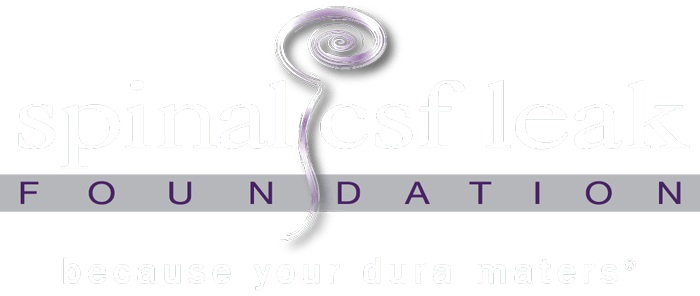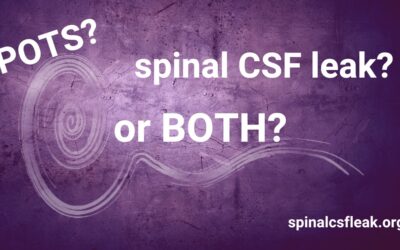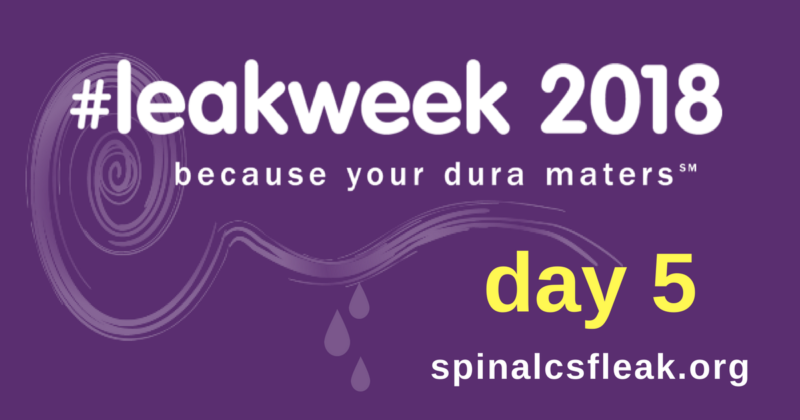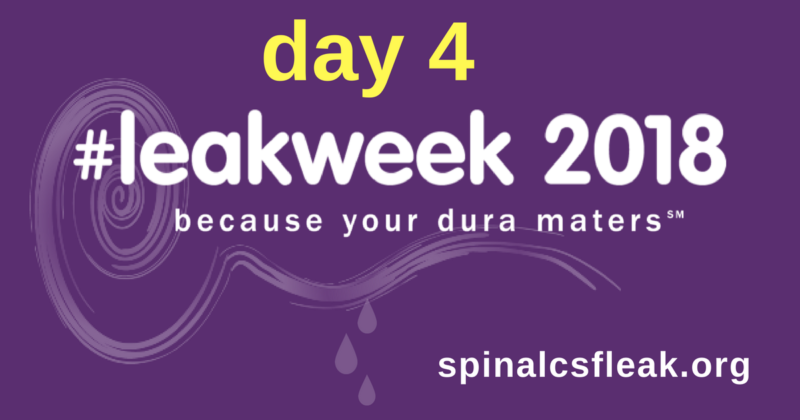On this day to honor those we have lost during Migraine and Headache Awareness Month, I wish to share fond memories and appreciation of Bahram Mokri, MD. He joined Mayo Clinic Rochester in 1970 as a Neurology resident, then joined the staff there in 1974,...
Updates from the Spinal CSF Leak Foundation
10 Myths + Misperceptions
Spontaneous Intracranial Hypotension: 10 Myths and Misperceptions This 2018 publication by the team of neuroradiologists in the Department of Radiology at Duke University Medical Center reviews the body of literature on spontaneous intracranial hypotension and...
POTS, spinal CSF leak or BOTH?
Orthostatic headache, or headache that is worse when upright, is a key feature of intracranial hypotension due to spinal CSF leak, but is also a common feature in patients with postural orthostatic tachycardia syndrome (POTS). Getting the correct diagnosis is...
Are all CSF leaks similar?
Often, when referring to any kind of cerebrospinal fluid leak, the non-specific term CSF leak is used. Few realize that a CSF leak may arise in the head OR in the spine, AND that these are two different disorders. Let’s try to clear up some of the confusion. What is a...
Intracranial hypotension – many mimics
The diagnosis of intracranial hypotension due to spinal cerebrospinal fluid (CSF) leak can be challenging for physicians and other healthcare professionals. Even though the most frequent symptom is a positional headache – worse after minutes to hours upright and...
#leakweek 2018 in review
Today we would like to recap #leakweek 2018 Our primary goal of Leak Week has been to raise awareness about spinal cerebrospinal fluid (CSF) leak so that more patients might be correctly diagnosed and treated. We featured 3 very informative expert interviews: • Wouter...
Diane’s headache story
Diane thought her spinal CSF leak had been thoroughly treated. But when her symptoms returned, it would take nearly eight years and surgery to fully address the underlying cause: a CSF-venous fistula. It was summer 2008 when Diane, on vacation with her family, bent...
leakweek 2018 – day 6
This is Day 6 of #leakweek 2018 – because your dura maters℠ Spinal cerebrospinal fluid (CSF) leak is an under-diagnosed cause of disabling daily headache with other neurological symptoms and complications that can happen to anyone. A spinal CSF leak is...
An interview with Dr. Linda Gray
Spinal cerebrospinal fluid (CSF) leak is an under-diagnosed cause of disabling daily headache with other neurological symptoms and complications that can happen to anyone. The underlying problem is a hole or tear of the dura mater along the spine, the tough...
leakweek 2018 – day 5
This is Day 5 of #leakweek 2018 – because your dura maters℠ Spinal cerebrospinal fluid (CSF) leak is an under-diagnosed cause of disabling daily headache with other neurological symptoms and complications that can happen to anyone. A spinal CSF leak is...
The Beginning of Everything – an interview with Andrea J. Buchanan
Andrea J. Buchanan is a New York Times bestselling author whose latest book is THE BEGINNING OF EVERYTHING. She chronicles her experience with a spinal cerebrospinal fluid (CSF) leak that abruptly derailed her ability to function and to think normally. She leads us...
leakweek 2018 – day 4
This is Day 4 of #leakweek 2018 – because your dura maters℠ Spinal cerebrospinal fluid (CSF) leak is an under-diagnosed cause of disabling daily headache with other neurological symptoms and complications that can happen to anyone. A spinal CSF leak is...










